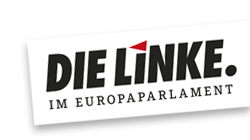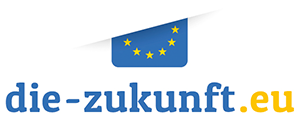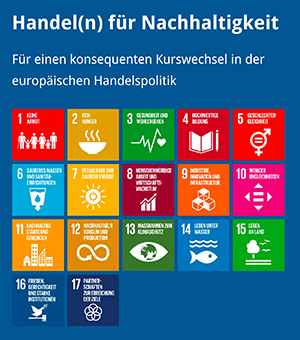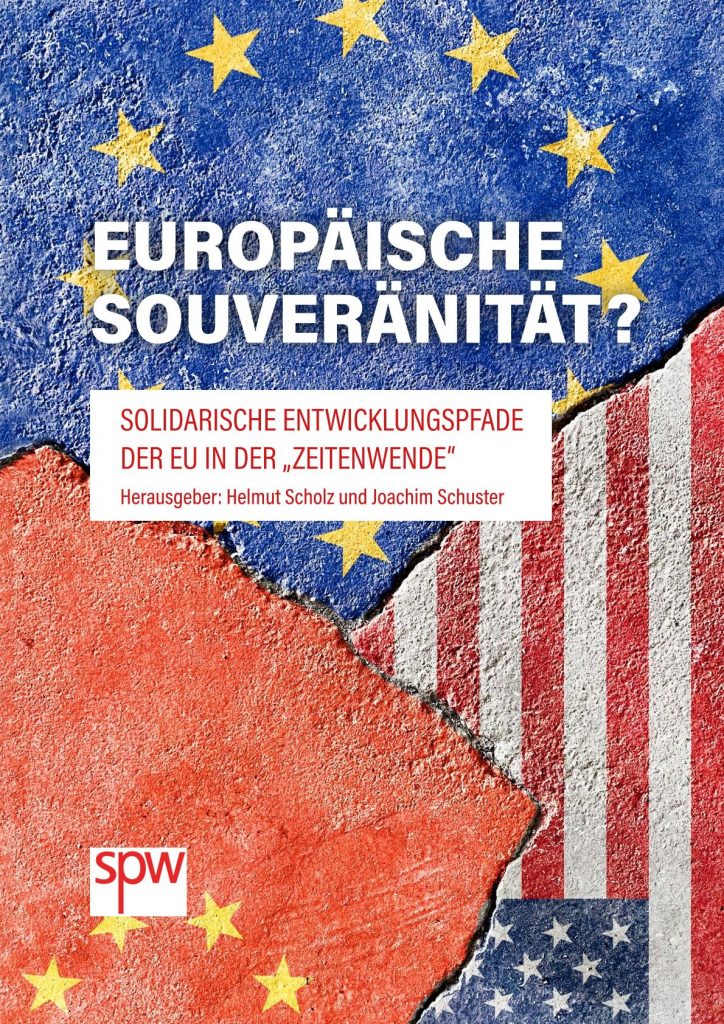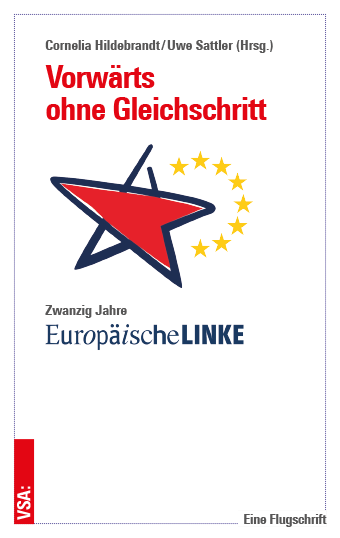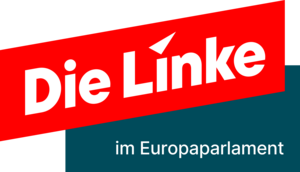Unter der Internetadresse http://www.europarl.europa.eu/ep-live/fr/other-events/video?event=20150908-1530-SPECIAL-UNKN wird am Dienstag (08.09.15) um 15.30 Uhr die Pressekonferenz mit Lynn Boylan, Berichterstatter zur Initiative Right2Water, live übertragen. Die Resolution unseres Fraktionskollegen von der irischen Sin Fein findet unsere volle Unterstützung. Anbei dokumentieren wir Hintergründe zur Resolution und zur Kampagne Right2Water sowie zur Position der Linksfraktion.
Lynn Boylan Report
Date: September Strasbourg Plenary
Briefing
on FOLLOW UP TO THE EUROPEAN CITIZENS' INITIATIVE RIGHT2WATER
Committee on Environment, Public Health and Food Safety (ENVI)
1. Background:
"The European Citizens’ Initiative (ECI) is an important instrument of participatory democracy in the European Union. Thanks to this measure, one million EU citizens residing in at least one quarter of the Member States can invite the Commission to submit a proposal for a legal act which they consider to be required in order to implement the EU Treaties. (...)In this respect, the ECI is similar in nature to the right of initiative conferred on Parliament (Article 225 TFEU) and on the Council (Article 241 TFEU)" EC statements.
The first ever ECI that reached the passing minimum thresholds in 13 Member States – far above the legally required minimum of 1 million signatures in ¼ of MS, was the one related to the Right of People to Water. It generated widespread public interest; 1,659,543 signatures have been gathered by the initiators across many Member States and the collection of signatures continued after the submission and reached almost 1,9 million signatures. On 17 February 2014, according to the rules, the ENVI Committee organised the first public hearing of a successful European Citizens' Initiative, 'Right2Water'
The three demands of the initiative and the ECI organisers were http://www.right2water.eu/ :
(...)The EU legislation should require governments to ensure and to provide all citizens with sufficient and clean drinking water and sanitation. We urge that:
-
The EU institutions and Member States be obliged to ensure that all inhabitants enjoy the right to water and sanitation.
-
Water supply and management of water resources not be subject to ‘internal market rules’ and that water services are excluded from liberalisation.
-
The EU increases its efforts to achieve universal access to water and sanitation.
In accordance with Article 10 of Regulation 211/2011, the Commission reacted in a Communication COM(20414)177 published on 19 March 2014, which starts by outlining the enormous amount of work already done by the EU in the field of water and sanitation. For example, within the EU, it has set ambitious water quality standards, and provided financial support to expand and improve water infrastructure in Member States....
Concerning the request of the ECI the EC reaffirmed that 1. the decision on how best to operate water services is firmly in the hands of the public authorities in the Member States, and the Commission will continue to respect Treaty rules requiring the EU to remain neutral on national decisions governing ownership of water undertakings. Similarly, in 2. in international trade negotiations, the Commission will continue to ensure that national, regional and local choices on how to run water services are respected and safeguarded. The unique nature of water and sanitation services in satisfying the basic needs of the population have been consistently acknowledged in EU legislation. Water distribution and supply, as well as wastewater services, are already expressly excluded from the application of the cross-border freedom to provide services and from the Directive on awarding concession contract, as a direct result of public concerns. Thirdly, on request no3 the EU and its Member States currently provide close to €1.5 billion/year for Water Supply, Sanitation and Hygiene (WASH) programmes in developing countries, making the Union the largest single donor in the world in this area.
The Commission's commitment for the future was mostly related t to:
-
launching an EU-wide public consultation on the Drinking Water Directive (conducted in the period 23/06/2014 - 23/09/2014);
-
reinforcing the implementation of existing water quality legislation, building on the 7th EAP and the Water Blueprint, and to take further steps to improve transparency in the water sector;
-
stimulating innovative approaches for development assistance in the field of water, and advocating for universal access to safe water and sanitation as a priority for future SDGs.
2. Our political line reflected in the report
Our group was very involved in the initiative since the beginning with many of our MEPs co-signing it and therefore, we were also very disappointed with the EC's reaction. Re-stating the Treaty and the EC's achievements so far, was considered just not enough.
Therefore, we have requested to get the report on the follow-up of the Citizens' Initiative. In the Report written by Lynn Boylan, we welcome the Commission's reiteration of existing commitments but consider that the communication lacks ambition. The draft report calls inter alia for the recognition and full implementation of the human right to water and sanitation, a permanent exclusion of water and sanitation from internal market rules and trade negotiations and the full integration of universal access to water and sanitation in EU development policies, for example through the promotion of public-public partnerships. Additionally, our draft report seeked to enhance public participation and transparency in water service provision, and encourage solidarity measures directed at vulnerable populations. The report welcomes the large mobilisation of citizens in several Member States on the issue of water ownership and provision, and views the ECI as a means of promoting participatory democracy at the EU level.
As you can imagine, we have received a lot of amendments (253) and some MEPs have considered that we promote our own policies in this follow-up report. Most of the amendments were against the criticism to the EC, against the request for legislation on the right to water, against the re-iteration of the citizens' growing concern and the difficulties faced to pay the bills, against exclusion of the trade agreements, against the request the trend for re-minicipalisation etc. On the other hand we received many amendments supporting our positions and going even further, using stronger words or requesting more action e.g. providing minimum of water per person, creating of water banks etc.
3. The ENVI report
Unfortunately in such an issue and with so clear and concrete questions (in favour of water for everyone even if he/she doesn't have the means? inside the negotiations for trade agreements? liberalisation or not of water and its services, Public-Public Partneshpis etc) the groups are either against or in favour. As the Committee is completely divided, we decided to try to find CA, in order not to loose all good parts of the report just for few votes. CAs were presented and negotiated in 2 shadow meetings. In the end, we reached in total 16 CAs. During these meeting we have been very conciliating and we tried to embrace all concerns, as long as they respected the requests of the ECI and indirectly our line. In some of the CAs we had the support of all groups, but in the most crucial ones, we were the minority. Amendments such as the ones related to 1.affordability of water and its services 2.water pricing 3.support to municipalities 4. re-municipalisation 5. recognition of the right to water and sanitation 6.internalisation of the cost of pollution, 7.trade agreements, 8.exclusion of water and sanitation from internal market rules and public-public partnerships most probably would fall.
In that point, it worth saying that the numbers were not in our favour as they were (before the creation of the new group):
Total ENVI members 69
EPP 20, SD 18, ECR 7, ALDE 7
GUE 5, Greens 5, EFDD 3, NI 4;
Our allies were S&D, GREENS, EFDD meaning we had 31 out of 69.
Therefore, we took the decision to ask for a RCV for all compromises, trying to trigger the sensibility of all groups or at least the serious discussion inside their group. Or as a last resort a name and blame policy from the side of the ECI coordinators.
Our strategy worked, the EPP asked us to request to postpone the vote, with the excuse that their shadow was ill and that they wanted to discuss a bit more on the CAs. Of course this argument was not valid, as their shadow was operated, it was known for at least one week before and her assistant and the advisor were negotiating on her behalf and on EPP's behalf the whole time. Not to mention that in the cases where we proposed CAs along the line of the EPP shadow, their advisor, considered that the amendments of other EPP MEPs had more weight, and the shadow's ones were overpassed. This argument and this excuse appeared only the night before and the day of the vote after the request for RCV. Together with the EPP, the S&D coordinator was also insisting in postponing saying that we will destroy the ECI. The attitude of the ALDE shadow was also unacceptably aggressive. Not only they wanted to postpone the vote, they even wanted it to be accepted by Lynn without even putting it into a vote. The postponement was put into vote and with an outcome of 34-34 the report was voted.
The result of the RCV? ALL Compromises passed. If you wish to see who voted what, please take a look here: https://polcms.secure.europarl.europa.eu/cmsdata/upload/876f2a85-3ca4-4ae9-a2f1-ce0645609db1/2015-06-25%20-%20Roll%20Call%20Votes.pdf
3. Our position for the plenary
If the report remains as it it, we will definitely vote in favour. But we wouldn't be surprised if we had some development. Moreover, we are thinking of requesting a RCV on different very important paragraphs, such as the ones on trade agreements, on re-municipalisation, on internalisation of the cost of the pollution etc.


